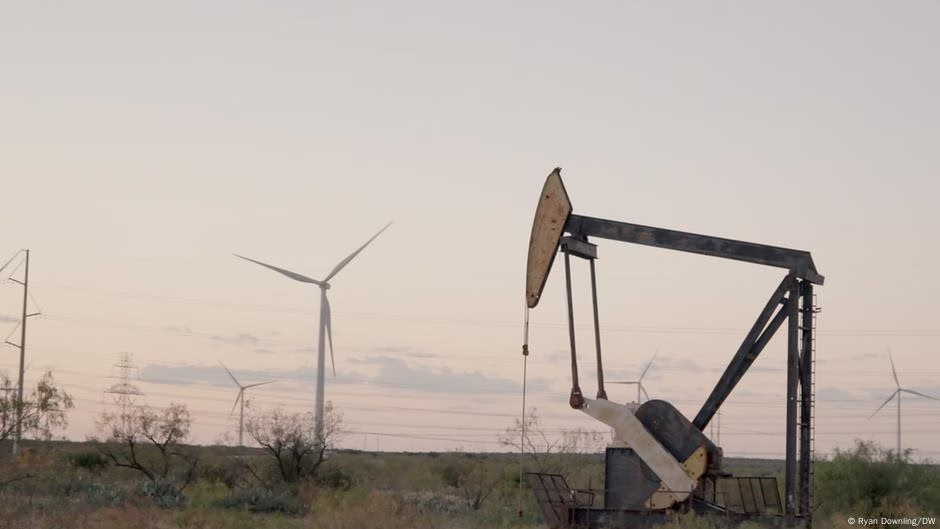Driving through the expansive, dusty landscape of West Texas, the dominance of the oil industry is evident, with the terrain dotted with oil pumps that rhythmically rise and fall, extracting the black gold upon which the local economy heavily relies.
Despite environmental concerns, successive U.S. governments have advocated for increased drilling across the nation, arguing that expanded extraction leads to lower gasoline prices, abundant job creation, and enhanced energy independence. Consequently, Texas has become a hub for oil extraction, churning out nearly five million barrels of oil daily, which meets almost 5% of the global demand.
The oil industry promises substantial employment opportunities, often portraying itself as a vital source of income for hardworking Americans with high wages and a path to prosperity. For instance, Hollis Eubanks, a junior field engineer, was drawn to the oil industry by the lure of high earnings, even though he acknowledged the volatile nature of the work and the physical and psychological sacrifices it involves.
The harsh reality is that oil and gas employment is at its lowest since the late 1990s, with many workers opting to leave for other sectors such as renewables, which are growing faster nationwide. Despite the promises of job growth, the oil industry is also struggling with challenges like overproduction, market downturns, and the need to perform risky and sometimes deadly work in extreme conditions.
Another claim of the oil industry is that increased drilling would reduce America’s dependence on foreign oil. However, this is complicated by the fact that the U.S. often exports its light crude to China and Europe while importing other types of oil, primarily from Canada, meaning that while domestic production has increased, imports cannot be entirely eliminated.
Furthermore, the price reduction promise associated with increased oil drilling is not as straightforward as it seems. The increased supply does not always equate to lower costs, as regular Americans often see minimal savings at the gas pump, particularly since oil companies have little incentive to flood the market with cheap oil.
In addition to the costs associated with the extraction process, there are also hidden costs for taxpayers, including the cleanup of unplugged and improperly plugged wells. These wells can leak methane, a potent greenhouse gas, and contamination of groundwater can occur if not sealed properly. Research indicates that there could be as many as 2.6 million abandoned wells across the entire country, with potential cleanup costs soaring into the billions.
Therefore, the reality behind the oil
Source: https://www.dw.com/en/why-the-us-oil-boom-isn-t-helping-regular-people/a-71674471?maca=en-rss-en-all-1573-rdf





